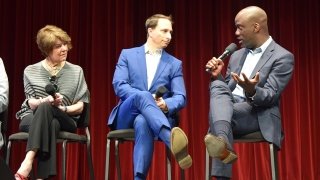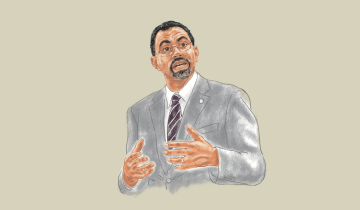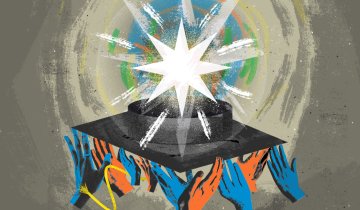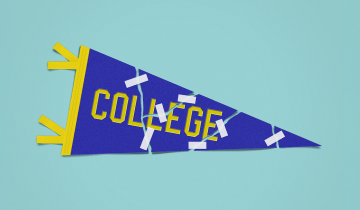Almost 500 education reporters gathered at USC this past month to learn how to improve diversity and inclusion in newsrooms and in the news itself.
The annual meeting of the Education Writers Association, a nonprofit professional group established to provide development to education journalists, commentators and educational organizations, headlined their annual conference with USC Rossier experts well-versed in equity.
Delivering the conference’s opening speech, Shaun R. Harper, executive director of the USC Race and Equity Center and a Provost Professor at USC Rossier, presented 10 “big ideas” on race and education geared toward journalists.
“I think of education writers as having the responsibility of teaching our nation things they need to know and truth that needs to be told about the realities and complexities of all things education,” Harper said.
Among Harper’s big ideas for education writers: Focusing on racial mismatch between students and teachers; examining the radicalization of young White students—especially men—and their involvement in hate groups; greater attention to Asian American, Pacific Islander and Native American students; and racial inequities in school discipline.
On a panel reacting to Harper’s remarks, Dean’s Professor Estela Mara Bensimon, director of the USC Rossier Center for Urban Education, noted the role of journalism in a recent incident on a college campus, in order to accentuate the need for race-consciousness in news stories. Earlier this May, two Native American students on a tour of Colorado State were reported to campus security for making a mother on the tour nervous, but news articles omitted the woman’s race.
“Language matters, and how you frame a problem matters in terms of who becomes the subject,” Bensimon said. “Too often what I see is that we’re still portraying problems in ways that put the onus on the students who experience the inequalities.”
Other USC Rossier faculty to speak throughout the conference included Associate Research Professor Zoë Corwin; Associate Professor of Education Morgan Polikoff; and Associate Dean for Diversity and Inclusion Darline Robles.
And Dean Karen Symms Gallagher headlined the EWA’s National Reporting Awards. The ceremony included the announcement of the winner of EWA’s annual Eddie Prize for journalism that investigates college access for low-income students. Mark and Marilou Hamill, longtime supporters of USC’s Neighborhood Academic Initiative, handed out the prize after brief remarks.
The conference featured a number of other significant events as well, with one of the most powerful being an emotionally charged panel featuring survivors of gun violence from Chicago; Newtown, Conn.; and Parkland, Fla.
Emma Gonzalez, a student from Marjory Stoneman Douglas High School, in Parkland, said that she and her fellow students found the need to speak out because they found discussions about reducing gun violence often lacked multi-faceted approaches.
“Everybody’s getting hurt by this. It’s not just schools,” Gonzalez said. “If you just address schools, then Las Vegas is still going to happen. So is Charleston. And we can’t let that happen.”




